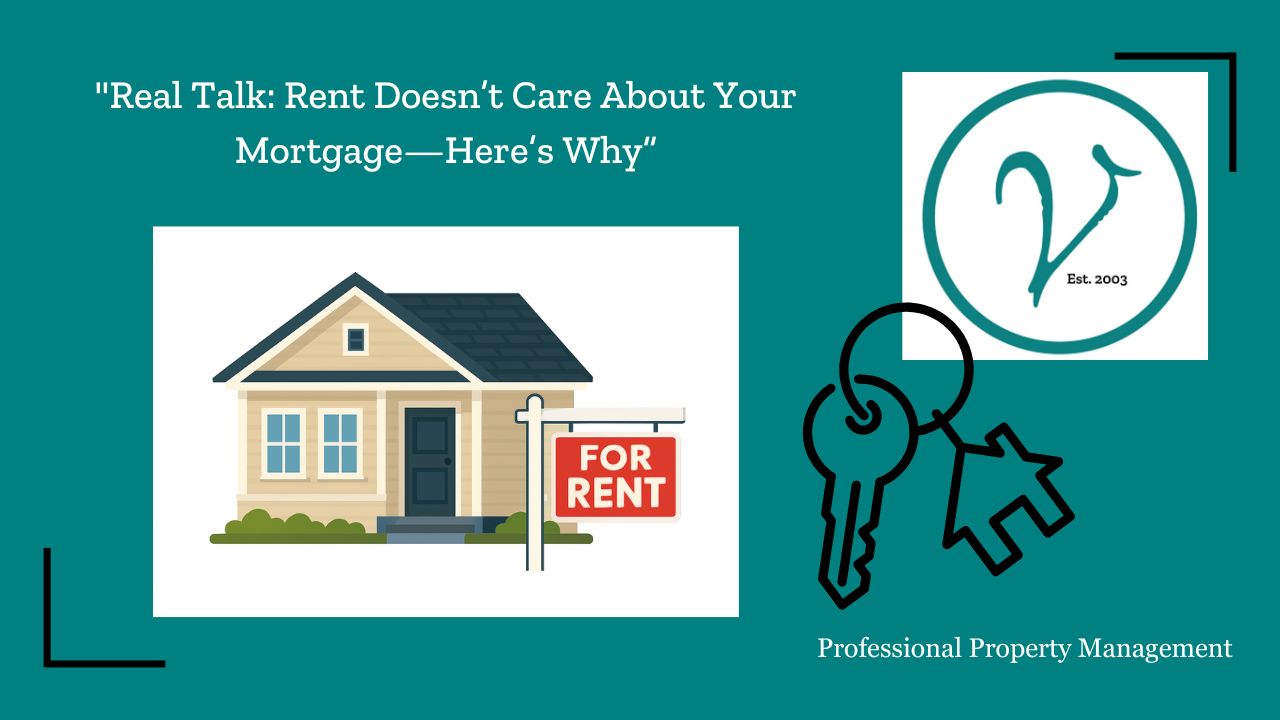At Verandah Properties, we meet a lot of new owner-clients who approach us with enthusiasm and hope. That’s a great start—but let’s also pair that with a healthy dose of reality when it comes to rental property ownership in Central Florida.
Too often, we hear a version of this thinking:
"I need to charge enough rent to cover my mortgage, taxes, insurance, HOA, and maintenance."
We get it. On the surface, this seems reasonable. But let’s break this down—because this mindset is where a lot of owners go wrong.
❌ Misconception #1: "My rent should cover all my holding costs."
Reality: Market rent is not based on your personal expenses. It’s based on what qualified tenants are willing to pay for comparable properties—period.
You may want your rental income to match your mortgage, taxes, and insurance, but the market doesn’t care what your carrying costs are.
Would you expect rent to be $0 if your home was paid off? Of course not—so why do the opposite?
If your costs are higher than market rent, you’re operating at a loss—and it might be time to consider selling or reassessing your investment strategy.
❌ Misconception #2: "But costs have gone up, so I can just raise the rent."
Reality: Rent is not tied to your rising expenses—it’s tied to market demand and competition.
Tenants have choices. If your home is overpriced, they’ll simply rent a better one for less.
You can’t pass on every increased cost (tax hikes, insurance premiums, HOA fees) to the tenant and expect them to stay.
If you price yourself out of the market, you’ll sit vacant—and vacancy is the biggest expense of all.
❌ Misconception #3: "It’s still my home."
Reality: Once you rent it out, it’s a business asset, not your personal space.
Emotionally detaching is key. Tenants don’t “see it like you do”—they see it as a place to live.
Homes must be maintained, marketed, and presented like a product—not a memory.
This is no longer a sentimental experience—it’s an investment, and it must be treated that way.
❌ Misconception #4: "It should cash flow immediately."
Reality: Not every investment creates positive cash flow right away.
Just like stocks, investing in real estate often requires time to see real returns.
Sometimes the value is in mortgage paydown and long-term appreciation—not just monthly cash flow.
Even breaking even (or coming slightly under) can still be a strategic win if the property is gaining value over time.
❌ Misconception #5: "I don’t have a choice. I’m an accidental landlord."
Reality: Whether you intended to be a landlord or not—you are one now. Welcome to the business.
You are responsible for legally complying, maintaining the home, screening tenants, and delivering a good product.
This is both a product and a service industry.
If you're not on board, your tenants—and your finances—will feel the consequences.
So What Should You Do?
✅ Do your research. Understand what the market is doing now—not what it did during the boom.
✅ Detach emotionally. Your property is now a business, not a shrine to your past.
✅ Adjust your expectations. Fair market rent, tenant demand, and property condition are the real metrics—not your personal spreadsheet.
✅ Work with a professional. At Verandah Properties, we help owners make data-driven, smart decisions about their rental homes—so they succeed, not struggle.
Bottom Line:
Rental properties don’t exist to cater to personal wishful thinking. They are part of a dynamic market, and they must be approached with business-minded clarity. When you get real about what your property is—and isn’t—you give yourself the best chance for long-term success.
We understand the transition to becoming a landlord—whether by choice or circumstance—can be overwhelming. But with the right mindset and a strong team behind you, it can also be incredibly rewarding.
If you're ready to treat your rental property like a real investment, Verandah Properties is here to guide the way. Reach out to us today and let’s talk about how we can help you succeed.


